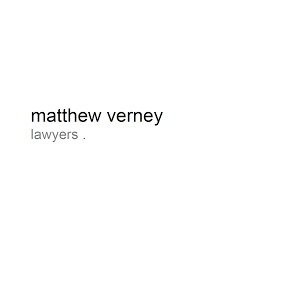Best Trusts Lawyers in Devonport
Share your needs with us, get contacted by law firms.
Free. Takes 2 min.
List of the best lawyers in Devonport, Australia
About Trusts Law in Devonport, Australia
A "trust" is a legal concept in which one party, known as the trustee, holds assets for the benefit of another party, the beneficiary. Trust law in Devonport, Australia operates under both state and Commonwealth laws surrounding the creation, management, and termination of trusts. Not everyone is allowed to create a trust, and there are strict guidelines around the powers and obligations of trustees, as well as the rights of beneficiaries. This can entail a complex legal landscape that requires professional interpretation.
Why You May Need a Lawyer
While setting up a trust can seem straightforward, it requires careful consideration and legal understanding to ensure that it serves its intended purpose and is legally sound. You may need a lawyer to help draft or review the trust document, decide the type of trust best suited for your situation, ensure the trust aligns with your estate planning needs, and handle any disputes between trustees and beneficiaries. Moreover, as trusts can have significant tax implications, a lawyer can help you navigate this aspect as well.
Local Laws Overview
Trust laws in Devonport fall under the jurisdiction of the state of Tasmania. Key aspects of this legal framework include the Trustee Act 1898, the Trustee Amendment Act 2008, the Trustee Companies Act 1953, and the Duties Act 2001. These laws cover the responsibilities and liabilities of trustees, procedures for trustee meetings, trustee's discretions, conflict resolution measures, and the rights of beneficiaries, among other issues. Additionally, trusts are subject to the Commonwealth Taxation laws, thus it's crucial to be mindful about the compliance with these laws to avoid penalties.
Frequently Asked Questions
What are the most common types of trusts?
There are a range of trust types including discretionary trusts (also known as family trusts), unit trusts, charitable trusts, testamentary trusts and special disability trusts.
Can a trust be altered or terminated?
Under certain circumstances, a trust in Devonport may be altered or terminated, but the process is usually complicated. Professional guidance is often necessary.
What are the duties of a trustee?
A trustee is responsible for managing the trust's assets according to the terms of the trust and for the benefit of beneficiaries. Typical duties may include keeping accurate records, filing appropriate taxes, making decisions impartially, and more.
What happens when a trustee fails in their obligations?
If a trustee fails to meet their obligations, they may be held personally liable for losses resulting from their failure. In some cases, they may be removed from their position.
Does a trust pay taxes?
Yes, trusts are subject to various taxes including income tax and capital gains tax. The trustee is typically responsible for ensuring these are paid from trust funds.
Additional Resources
Resources such as the The Law Society of Tasmania can be helpful for someone in need of legal advice. They manage a directory of accredited specialists who can assist in trust and related matters. Also, the Australian Taxation Office provides a wealth of resources regarding tax obligations for trusts.
Next Steps
If you require legal assistance with trusts, the first step should be to locate and engage a capable lawyer who specializes in trusts. They can provide helpful advice tailored to your particular needs, guide you through the compliance requirements, and potentially prevent costly mistakes.
Lawzana helps you find the best lawyers and law firms in Devonport through a curated and pre-screened list of qualified legal professionals. Our platform offers rankings and detailed profiles of attorneys and law firms, allowing you to compare based on practice areas, including Trusts, experience, and client feedback.
Each profile includes a description of the firm's areas of practice, client reviews, team members and partners, year of establishment, spoken languages, office locations, contact information, social media presence, and any published articles or resources. Most firms on our platform speak English and are experienced in both local and international legal matters.
Get a quote from top-rated law firms in Devonport, Australia — quickly, securely, and without unnecessary hassle.
Disclaimer:
The information provided on this page is for general informational purposes only and does not constitute legal advice. While we strive to ensure the accuracy and relevance of the content, legal information may change over time, and interpretations of the law can vary. You should always consult with a qualified legal professional for advice specific to your situation.
We disclaim all liability for actions taken or not taken based on the content of this page. If you believe any information is incorrect or outdated, please contact us, and we will review and update it where appropriate.








